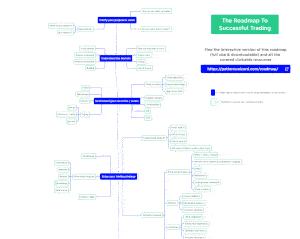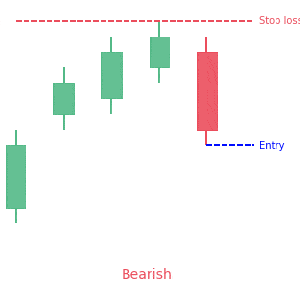Which one is better for investment when it comes to blue chip stocks vs. ETFs? It is a very crucial question in the world of trading. Investing in blue chip stocks gives you ownership of the world’s most successful companies. However, this investment is limited only to stocks in your portfolio. On the other hand, exchange-traded funds or ETFs give you access to a variety of stocks.
So where should you invest your money when choosing between blue chip stocks and ETFs? That’s what we are going to tell you in this post. To help you make an educated decision, we are going to explain which type of investment is better for you. Let’s dive deep to find out.
Blue Chip Stocks vs. ETFs
Your trading strategy and goals are the key factors when it comes to deciding between blue chip stocks vs. ETFs. As you know, blue chip stocks are stocks of highly established and successful companies. These companies have a long history of success. Moreover, blue chip stock investment is for long-term investors and doesn’t carry serious risks. They offer steady and reliable income. So, if you are looking for a low-risk investment with a steady and reliable income, blue chip stocks are for you. On the flip side, if you are after capital appreciation, ETFs are the best choice.
However, this isn’t the end of the discussion. There are several other factors that you need to consider.
Blue Chip Stocks vs. ETFs – the differences
Understanding the differences between blue chip stocks vs. ETFs makes it easy for you to choose between the two. In fact, it leads you to choose one that suits your investment strategy.
Structure
There are structural differences between blue chip stocks and ETFs. As you already know, blue chip stocks are stocks of huge companies with a long history of success. Investing in these stocks means owning shares of a company or companies. Whereas, ETFs refer to investment funds that track certain indexes. That means, investing in them is like investing in different financial instruments like stocks, bonds, commodities, etc.
Another structural difference between the two is how they are made available to investors. Blue chip stocks are issued by companies. Contrarily, professional fund managers operate ETFs. They make a pool of different financial instruments and make it available to investors. Fund managers keep buying or selling instruments to keep ETFs aligned with their goals.
Risk
Blue chip stocks are considered a low-risk investment but there is a risk because there are lots of factors that impact a company’s performance. Whereas, ETFs are comparatively safer because they consist of a pool of financial instruments.
Liquidity
Blue chip stocks are subject to high liquidity. That means you can easily sell them whenever you want. However, the liquidity of ETFs depends on the financial instruments held as well as the trading volume of the fund offering ETFs.
Advantages and disadvantages of investing in blue chip stocks vs. ETFs
With all the differences between blue chip stocks and ETFs in mind, we can conclude the following advantages and disadvantages of both types of investment.
Advantages of blue chip stocks
- Stocks of highly successful companies with strong financial health
- Pay dividends consistently
- Offer high liquidity
- Investing in blue chip stocks offers greater flexibility and control over your portfolio
Disadvantages of blue chip stocks
- Highly expensive investment
- Low growth potential as they are established companies
- High share price makes diversification difficult for average investors
Advantages of ETFs
- Offer higher capital appreciation
- Great investment option for long-term investors
- Comparatively less expensive than blue chip stocks
- May offer better earnings than individual stocks
- Make diversification easier
Disadvantages of ETFs
- Lower liquidity
- May carry high commissions and management fees
Which one is better for you?
Blue chip stocks are a better investment choice for you if you are looking for a steady income. Contrarily, if you are looking for capital appreciation, ETFs are better for you. However, the best strategy is to invest in ETFs holding blue chip stocks. It will enable you to capitalize on the advantages of both blue chip stocks and ETFs. Additionally, it also mitigates risk to the lowest possible levels.
 Good Trading requires the Best Charting Tool!
Good Trading requires the Best Charting Tool!

 We loved Marwood Research’s course “Candlestick Analysis For Professional Traders“. Do you want to follow a great video course and deep dive into 26 candlestick patterns (and compare their success rates)? Then make sure to check this course!
We loved Marwood Research’s course “Candlestick Analysis For Professional Traders“. Do you want to follow a great video course and deep dive into 26 candlestick patterns (and compare their success rates)? Then make sure to check this course!